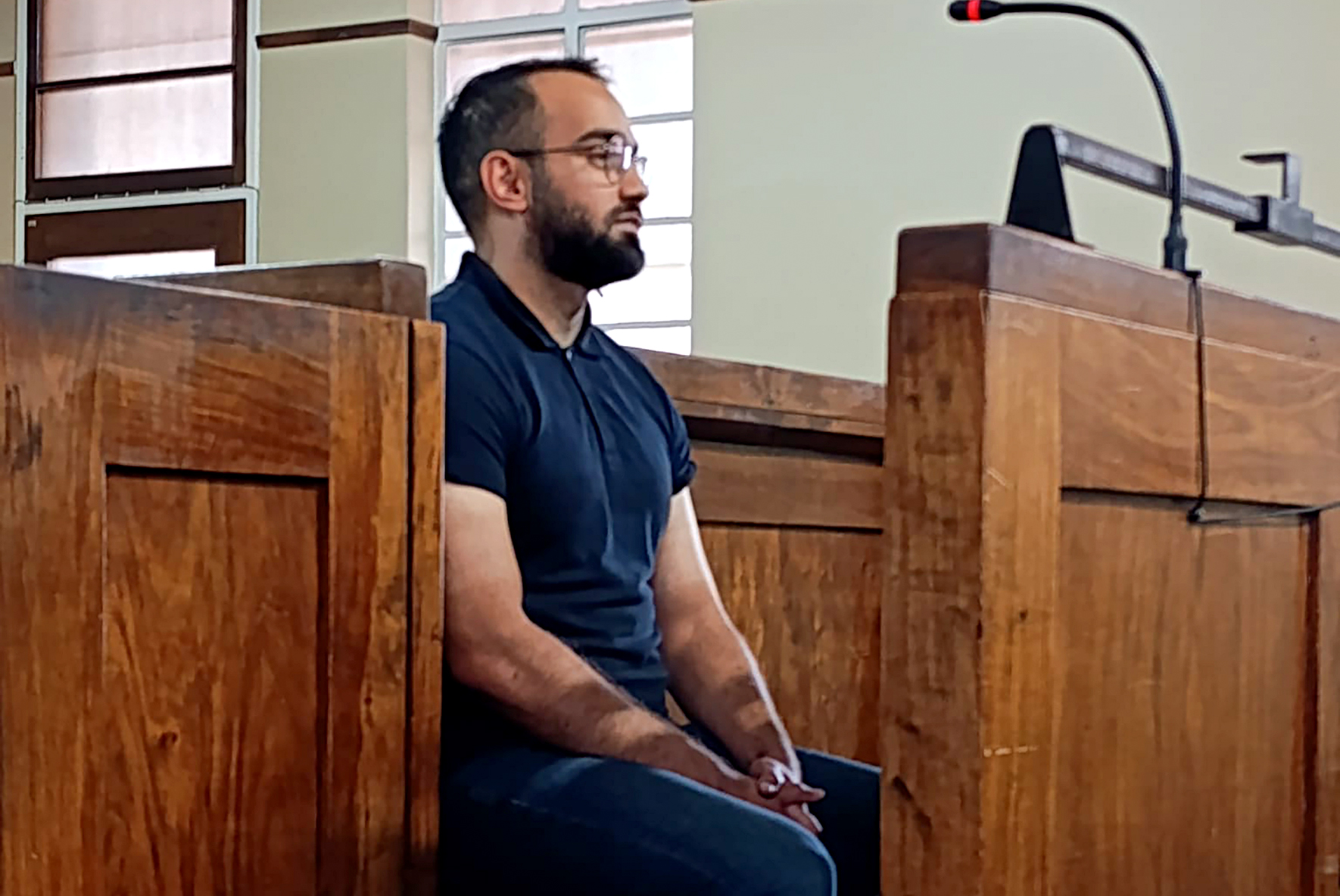On Friday, 10 January 2025, terror financing-accused Ziyadh Hoorzook (35) appeared before the Lichtenburg Magistrate’s Court in the North West to apply for bail.
Hoorzook faces a charge of contravening the Protection of Constitutional Democracy Against Terrorist and Related Activities Act.
He was arrested at his home in Johannesburg on 3 January 2025 following a lengthy investigation that ensued in May 2018 when the Financial Intelligence Centre and the Hawks received information about suspicious transactions allegedly linked to terror financing.
Hawks spokesperson Colonel Philani Nkwalase said: “Cryptocurrency in the form of Bitcoin worth R11,500 was allegedly purchased, through Luno, a Virtual Asset Service Provider, via transfer of money from the accused’s bank account to Luno’s custody account on 30 November 2017. On the same day, Bitcoin was reportedly transferred from the suspect’s Luno wallet to the wallet associated with an organisation that describes itself as an independent charity.”
The charity in question was linked to two other organisations, the Hawks said.
“Preliminary investigation revealed that the transfer was a response to an advertisement appealing for financial support of (terrorist) activities with weapons, financial aid, and other projects assisting the participants in another country,” said Nkwalase.
SA hides its head in the sand on terror matters
Terrorism financing from South Africa has increasingly become a pressing concern, with the 2024 National Risk Assessment identifying the country as a high-risk zone.
According to Willem Els, a senior training coordinator at the Institute for Security Studies (ISS), South Africa got here because of its response towards terrorism post-1994.
Els said: “It seems like South Africa has long adopted the approach of ‘we don’t name it, we don’t see it, it’s just going to go away’ — and it did not.”
South Africa was greylisted by the global financial crime watchdog Financial Action Task Force in February 2023 for not complying with international standards around the prevention of money laundering, terrorist financing, and proliferation financing.
Read more: SA’s exit from greylisting may be pushed out from June 2025 to October 2025… or later
Els told Daily Maverick: “Terror funding is one of the key components of terrorism itself, which is a very complex issue. South Africa already had a sort of approach to terrorism that’s because of its historical roots.”
Els said that after 1994, there was a sensitivity around the word “terrorism” in South Africa in part because the late president Nelson Mandela had been branded a “terrorist” by the US.
“That is why the Protection of Constitutional Democracy Against Terrorist and Related Activities Act was established where they tried to hide the word terrorism in the long name of the act,” Els said.
“Historically there was a reluctance to look at terrorism, but in the late 1990’s we were forced to look into it because of what happened in Cape Town with the Pagad Campaigns, which resulted in more than 100 bomb attacks in two years. That actually forced South Africa to take a stand against terrorism.”
Something similar happened in 2002 when the Boeremag trial put terrorism in the spotlight again, said Els. There was a brief flare-up in 2022 when the leader of far-right group the Crusaders was arrested.
“The tendency is that if we don’t have an attack for some time it moves down the priority list,” Els says.
‘More to come’
The Crusaders arrests were the only two convictions relating to contravening the Protection of Constitutional Democracy Against Terrorist and Related Activities Act that South Africa had had in the past five years, said Hawks spokesperson Philani Nkwalase — but he hinted that there may be more to come.
“We now have the current matter in court against Hoorzook. Over and above this, we have several terror finance cases under investigation. We cannot predict how many arrests will be effected in the future, but very soon, there are arrests to be made,” Nkwalase told Daily Maverick.
He added that there were measures in place to curb the scourge of terrorism as a whole that include strategies to deal with both terrorism and terrorist financing.
“We work hand in glove with our regional and international counterparts and foreign law enforcement agencies… We appreciate and recognise the role played by financial institutions to support our efforts to successfully investigate terror finance-related cases, and the NPA.”
For Els, South Africa has made significant progress when it comes to the legislation front, as far as terror finance-related cases are concerned.
But more needed to be done, he said.
“It’s an ongoing and long way to address the capacity challenges that we have. The arrest of Hoorzook is a step in the right direction.”
Daily Maverick’s questions to the National Treasury on the matter went unanswered. DM





